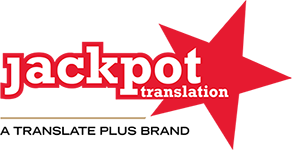
Is it possible to do DIY video game localisation and save money?
If you’re releasing a game on the international market, video game localisation is something you can’t ignore. At the very least, you’ll need some impeccable gaming translation to bring your game to international audiences and you may even have to adapt the design and content for certain markets.
In most cases, game developers turn to video game localisation agencies like ourselves to handle their projects, except for the big name publishers who often have their own in-house team. So what’s stopping the smaller studios and developers from their own DIY video game localisation?
Can video game localisation tools save you money?
A quick search on Google will bring up a number of localisation tools making big promises about handling the entire process for you. Generally, this starts with free gaming translation tools but also includes open source code templates and some paid project management tools.
So, in theory, you could get your hands on all of these video game localisation tools, put them together and get the job done yourself. Right? Well, sadly things are never that simple. For example, open source code projects aren’t much help unless you also have the coding skills to fit them into a workflow. Likewise, paid project management tools don’t come bundled with any language/localisation experts included – you have to find these “contributors” yourself.
In short, these tools aren’t any good to you unless you have the right team of linguistic and localisation experts on board. Some of them can speed up the process for those who know what they’re doing, but they won’t magically take care of gaming translation or localisation for you.
Note: we have our own collection of translation and localisation tools our experts use to adapt games to the highest standard, faster.
How can we make DIY localisation work?
This doesn’t mean DIY localisation isn’t possible in the right circumstances, though. If you have access to the language pros, programmers, designers, cultural experts and legal aid needed to properly localise your game, then there’s no reason you can’t do it in-house.
To put it another way, ask yourself how many of these tasks you can complete yourself:
- Translate your game into each language you’re targeting
- Optimise the code of your game for localisation
- Make the design tweaks needed to accommodate for gaming translation (both on the graphic and coding side)
- Analyse each target market to understand any further design/content changes that should be made (eg: cultural sensitivity, user expectations, etc.)
- Investigate the legal environment of each market to make sure you’re not in violation of anything (eg: gambling laws, censorship, etc.)
- Localise any packaging, game descriptions and other marketing content that needs to promote your title
- Manage the localisation project so each stage of the process is handled in the most efficient way possible
You don’t have to cover every single one of those tasks yourself, of course. If you have access to the language experts, programmers, legal staff and everything else you need, then it might be a case of outsourcing and managing various teams.
Why use a video game localisation agency?
The role of an agency is to create the most efficient process for localising your game. Our priority is making sure your game is translated and adapted to the highest standard, so you can maximise downloads and profit from each release. However, there’s more. With localisation the process is just as important as the end result, because an inefficient workflow adds time and money to your project, eating into your return on investment.
Our project managers have a lot to do with this, making sure progress is made at every step of the way. Then we have a number of systems in place – like translation memory – that each video game localisation project becomes easier over time.
The goal is always to hit the same level of standards, but do so in a way that maximises your return on investment.
The message we want to get across today is that DIY localisation is certainly achievable. However, it’s not recommended if your aim is to save money. Building your own localisation system will take time and resources, which is fine is you’re willing to invest in building your own in-house process. If you’re more interested in getting the best return for you spend, though, a video game localisation agency will already have the working process you need in place to make it happen.
- Posted by Alexandra Kravariti
- On 15th March 2017
- 0 Comments



0 Comments